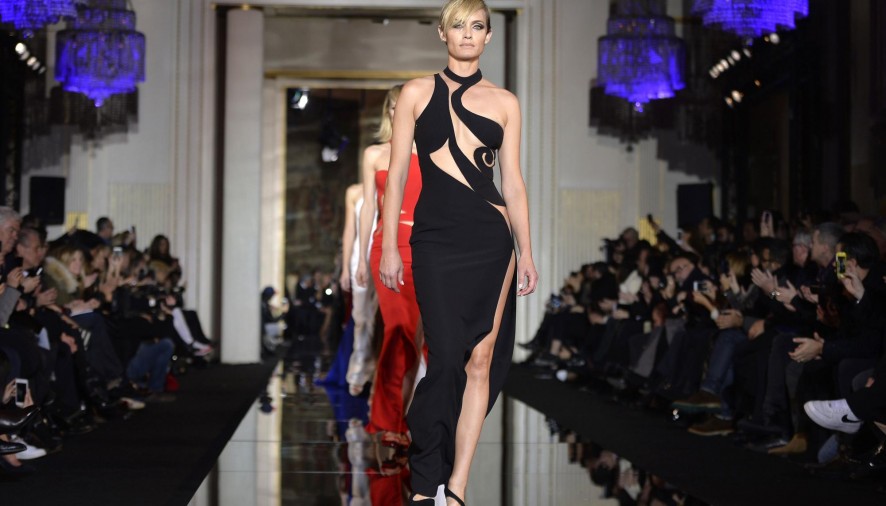It is a well-acknowledged fact that the beauty standards perpetuated by the fashion industry are unrealistic and unattainable for the majority of people. They, without a doubt, contribute to the diet industry, and pressure to lose weight that emblazons the cover of so many women’s magazines. It has been widely theorised that the rise of size 0 is responsible for the increasing number of anorexia sufferers and the increasingly young age at which people are being affected. To what extent this is true is unclear – however, it is undeniable that something must be done to tackle the unhealthy beauty standards that we are judged by.
In the past few years we have been able to observe the start of a change in attitudes, a demand for more representation of the truth, less photoshopping, more models closer to the average size. This shift, however, is happening at a glacial pace – and whilst we do see this change, we also see an increasing number of stories about models being told to lose weight. It is perhaps time to look at legislative changes – something to force a change in standards, whether this would work or not is debatable as beauty standards are an abstract concept and to constraining them with legal frameworks could be problematic. This legislative approach is one that France are trying as of December 2015.
As part of a new health bill aimed at targeting the rising number of anorexia in models as well as the growing problem of eating disorders in young people, it has been ruled that any models working in France will need a medical certificate to prove that they are healthy and not dangerously underweight. Failure to produce a certificate can lead to up to 6 months in jail and a €75,000 fine. Whilst there are problems with this – for example it perpetuates the view that sufferers from an eating disorder must be severely underweight and unhealthy – provided these ramifications target those who hold the power, designers and magazine owners, it could be a step in the right direction. No one, model or not, ought to be told to endanger their physical and mental health to be considered beautiful.
Another clause of the law sets out that any photos that are retouched must be labelled as so. This does seem to be a step in the right direction. However, if these legislative changes are expected to produce a huge reduction in the rates of eating disorders amongst young people or in fact a complete shift in beauty standards, they are sadly mistaken.
It has already been stated that a growing number of models suffer from anorexia – however, anyone with any knowledge of mental health knows that the way to treat illness is not through prison sentences or fines. Despite the fact that it is the employers that will be targeted, the fact that models will now not be hired due to their BMI, whether caused by illness or natural, will lead to a loss of earnings adding an increasing amount of stress to a vulnerable person’s life. Rather than spending money persecuting models for being underweight, the government should increase funding to mental health services. Mental health care is undervalued and underfunded the world over – and whilst this may not stop people developing eating disorders, early intervention is key in the treatment of them. Furthermore, raising awareness of mental illness and reducing the stigma means people will be in a better position to ask for and receive help.
Whilst I believe the French government’s intentions with this law are good, it really misses the proverbial elephant in the room. The link between size 0 models and a rise in the number of eating disorders has been stressed so many times – it almost seems like dogma. To challenge this view is to admit that maybe there is something inherently flawed in our society. Many sufferers of eating disorders cite feeling a lack of control as one of many triggers for their illnesses – anorexia and other eating disorders become one way to feel in control. What is rarely looked at is why do so many of our young people feel such a lack of control over their lives? This, to me, goes so much deeper than the prevalence of size 0 models in Vogue or on catwalks.
We must teach people that they are valued – that they are worth more than their appearance, that they are worthy of love and attention. We need to lift up our young people rather than put them under an increasing amount of pressure. Size 0 and beauty standards are one of these pressures, but really it goes so much deeper.
Emma Healey
[Miguel Medina/AFP/Getty Images]

